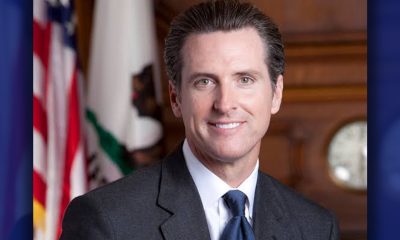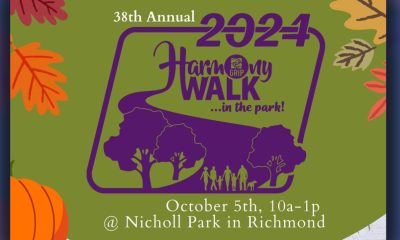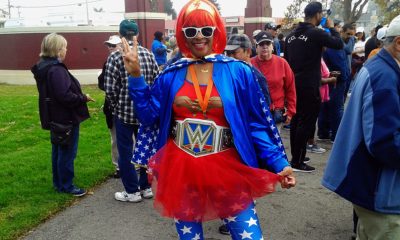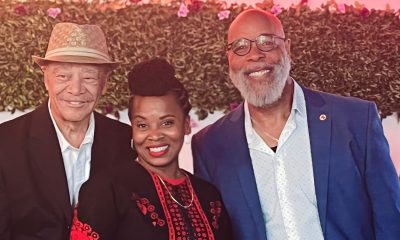Government
Eli Ferran Challenges Incumbent Barbara Parker in Oakland City Attorney Election 2020

There are two candidates running for Oakland City Attorney, the incumbent, Barbara Parker and former Deputy City Attorney Eli Ferran.
Parker has been in the office since 1991 and was elected City Attorney in 2013. She is a graduate of Harvard Law School and is a single mother of one, and a grandmother of two. Parker lives in District 2.
Ferran joined the Oakland City Attorney Office in 2008 and left in June of 2020. He is married with three children and attended law school at Loyola University in New Orleans with a brief post-Katrina evacuation stint at the University of San Francisco. Ferran resides in District 6.
The Oakland Post asked both candidates their views on three issues impacting Oakland residents: housing/homelessness, climate change, and predatory lending practices.
In their own words, here are their brief thoughts on the three issues:
Parker on Housing/Homelessness:
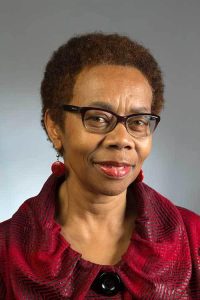
City Attorney Barbara Parker
I envision Oakland as a city of progressive neighborhoods, policies, and actions. Since becoming City Attorney, I proved my commitment to housing rights and homelessness prevention by authoring/sponsoring tenant protection legislation, such as the EQUAL, Fair Chance and Eviction Moratorium Ordinances.
I pursue strategic litigation to protect vulnerable tenants from abusive landlords. My commitment led to energizing our community-directed Neighborhood Law Corps (NLC), in part seeking to preserve Oakland’s racial, income, and professional diversity. The NLC has filed lawsuits that resulted in the creation of affordable housing.
In one case of substandard housing and numerous code violations, we secured a $485,000 settlement, the owner was removed and 90 units of affordable housing were created for 55 years.
I believe individuals re-entering from incarceration should not be penalized in housing, so I co-sponsored an ordinance prohibiting consideration of criminal records in rental housing applications. Because aggrieved tenants deserve protection and compensation, I secured over $1 million in various case settlements, successfully intervened in over a dozen cases during the pandemic to immediately protect tenants, allowing them to stay in their homes and stop landlords from removing belongings and changing locks.
My commitment to affordable housing and alleviating homelessness is absolute.
Parker on Climate Change
As a member of the human species, I recognize climate change as our existential challenge. In response, as City Attorney, I have not been afraid of going after the big guys. I have not shied away from suing -and will continue to go after multinational corporations for damaging our environment.
As a lead plaintiff, we have agreed to $550 million to settle a class-action lawsuit against Monsanto for contaminating waterways across the country with toxic chemicals.
I am prosecuting a public nuisance lawsuit against five major, international fossil fuel companies, including Chevron and Exxon Mobil, for their role in global warming.
After hard-fought litigation, Oakland and nine other cities and counties secured a $305 million settlement from lead paint manufacturers to clean up lead paint that poisons tens of thousands of children in California; and I successfully sued a company for discharging massive amounts of dangerous dust potentially containing asbestos or other hazardous materials into West Oakland neighborhoods and the City’s stormwater system. I continue fighting to stop the handling and storage of coal at the former Oakland Army Base. I vow to continue as a relentless protector of our environment.
Parker on Predatory Lending Practices
As City Attorney, I believe in pushing the envelope as far as legally and ethically possible to protect Oaklanders. My actions extend to stepping in when regulatory institutions fail us. It is no secret that the banking industry, including Wells Fargo, has taken advantage – illegally – of low-income and communities of color. In response, I filed a lawsuit against Wells Fargo for predatory and racially discriminatory mortgage-lending practices against African American and Latinx borrowers in violation of the federal Fair Housing Act. Wells Fargo fought back with its considerable legal resources and money.
Nonetheless, in our David vs. Goliath story, the Federal Court of Appeals recently upheld Oakland’s right to proceed with our lawsuit. This lawsuit seeks to stop these predatory practices and to compensate Oakland for lost property taxes and other damages the City suffered as a result of the foreclosure crisis that resulted in part due to predatory lending practices.
I will continue to seek ways to protect Oaklanders financially, be it against big banks, payday lenders, or others who try to take undue advantage of our residents.
For more information go to http://www.parkerforoakland.com
Ferran on Housing/Homelessness
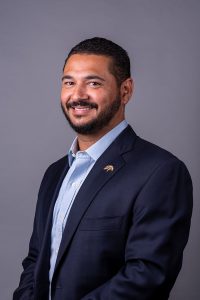
Eli Ferran
Many in my generation of Black Oakland residents despite, education and good jobs are not able to purchase property in the City. In addition to dealing with the COVID pandemic, we are still experiencing the consequences of discriminatory policies such as redlining and an affordability crisis. Due to discriminatory lending and housing practices, those who inherit property are unable to benefit from an increase in equity that would allow them to maintain the property. About 70% of homeless people in Oakland are Black residents, and we must work with the unhoused community, homeless advocates, City staff, and councilmembers to provide real solutions to this humanitarian crisis. Those solutions include a range of emergency, transitional, and permanent housing. As City Attorney, I will work with councilmembers and City staff to make sure these policies are legal and enforced. We must also call on Alameda County to play a great role in providing mental health and housing solutions.
The housing affordability crisis is not only an Oakland problem, but it is also a regional problem that requires regional and state-wide cooperation and solutions. The City can, however, improve the elements within its control such as the zoning and permit process. As City Attorney, I would encourage the City Council to implement fair and equitable policies that encourage homeownership within Oakland. This can be accomplished by the following: (1) Establishing a dedicated California Environmental Quality Act (CEQA) attorney within the City Attorney’s Office; (2) Recommending amendments to the California Building Standards Code to the Building Standards Commission; (3) Reviewing and updating regulations affecting the Planning and Building Dept.; (4) Creating and implementing a faster Planning and Building Dept. permit process; (5) Streamlining the process for building accessory dwelling units (ADU’s); and by (6) Effective use of state density bonus rules for new housing.
Ferran on Climate Change
These are unprecedented times. We are seeing wildfires spread across 3.1 million acres in California thus far, forcing thousands out of their homes. This is in addition to a pandemic with no end in sight that is disproportionately hurting low-income communities of color. Make no mistake, we are seeing the devastating consequence of climate change right before our eyes. We need climate leadership now because the alternative is not an option.
I am running for Oakland City Attorney because I believe that it is incumbent upon every one of us to build a sustainable future for our children and grandchildren. We cannot sit idly by when corporations are diminishing the air quality in our neighborhoods. As City Attorney, I will fight to hold accountable industrial polluters and work to equitably reduce Oakland’s climate emissions.
I will actively enforce the City’s Equitable Climate Action Plan (ECAP) to minimize Oakland’s contribution to climate change, focus on creating good green jobs, and improve air quality. I will be a visible, proactive, and progressive City Attorney, who will work to expand our capacity to be more responsive to the needs of our communities, especially those victimized by environmental racism.
Ferran on Predatory Lending Practices
Housing is arguably the greatest civil rights issue of our time. Historically, the government has instituted barriers to homeownership and tenancy for Black families. Neighborhood associations, landlords and financial institutions have all played a role, by promoting racial zoning laws and policies that discriminate against Black and brown homeowners seeking mortgage loans.
It is not acceptable that as recently as the early 2000’s Black communities were targeted with subprime mortgages by financial institutions. The Black community was deeply affected by the economic downturn that displaced many long time Oakland residents. The economic outcome of this pandemic is not certain; however, we must be pro-active and implement policies to prevent the same devastating effects that occurred in the last housing crisis.
As City Attorney, I will review the housing policy and laws that contribute to predatory lending. We must make it easier, not harder, to build more affordable housing. While being mindful of development’s impact on historically Black and Brown neighborhoods, which through the years have faced increasing gentrification, further displacing working-class people of color out of Oakland. As City Attorney, I will create a space for open dialogue and more transparency, where stakeholders such as community leaders and housing advocates can participate in the process.
For more information go to http://www.eliforoakland.com
Activism
2025 in Review: Seven Questions for Assemblymember Lori Wilson — Advocate for Equity, the Environment, and More
Her rise has also included several historic firsts: she is the only Black woman ever appointed to lead the influential Assembly Transportation Committee, and the first freshman legislator elected Chair of the California Legislative Black Caucus. She has also been a vocal advocate for vulnerable communities, becoming the first California legislator to publicly discuss being the parent of a transgender child — an act of visibility that has helped advanced representation at a time when political tensions related to social issues and culture have intensified.

By Edward Henderson, California Black Media
Assemblymember Lori D. Wilson (D-Suisun City) joined the California Legislature in 2022 after making history as Solano County’s first Black female mayor, bringing with her a track record of fiscal discipline, community investment, and inclusive leadership.
She represents the state’s 11th Assembly District, which spans Solano County and portions of Contra Costa and Sacramento Counties.
Her rise has also included several historic firsts: she is the only Black woman ever appointed to lead the influential Assembly Transportation Committee, and the first freshman legislator elected Chair of the California Legislative Black Caucus. She has also been a vocal advocate for vulnerable communities, becoming the first California legislator to publicly discuss being the parent of a transgender child — an act of visibility that has helped advanced representation at a time when political tensions related to social issues and culture have intensified.
California Black Media spoke with Wilson about her successes and disappointments this year and her outlook for 2026.
What stands out as your most important achievement this year?
Getting SB 237 passed in the Assembly. I had the opportunity to co-lead a diverse workgroup of colleagues, spanning a wide range of ideological perspectives on environmental issues.
How did your leadership contribute to improving the lives of Black Californians this year?
The Black Caucus concentrated on the Road to Repair package and prioritized passing a crucial bill that remained incomplete during my time as chair, which establishes a process for identifying descendants of enslaved people for benefit eligibility.
What frustrated you the most this year?
The lack of progress made on getting Prop 4 funds allocated to socially disadvantaged farmers. This delay has real consequences. These farmers have been waiting for essential support that was promised. Watching the process stall, despite the clear need and clear intent of the voters, has been deeply frustrating and reinforces how much work remains to make our systems more responsive and equitable.
What inspired you the most this year?
The resilience of Californians persists despite the unprecedented attacks from the federal government. Watching people stay engaged, hopeful, and determined reminded me why this work matters and why we must continue to protect the rights of every community in our state.
What is one lesson you learned this year that will inform your decision-making next year?
As a legislator, I have the authority to demand answers to my questions — and accept nothing less. That clarity has strengthened my approach to oversight and accountability.
In one word, what is the biggest challenge Black Californians are facing currently?
Affordability and access to quality educational opportunities.
What is the goal you want to achieve most in 2026?
Advance my legislative agenda despite a complex budget environment. The needs across our communities are real, and even in a tight fiscal year, I’m committed to moving forward policies that strengthen safety, expand opportunity, and improve quality of life for the people I represent.
Activism
2025 in Review: Seven Questions for Assemblymember Tina McKinnor, Champion of Reparations, Housing and Workers’ Rights
In 2025, McKinnor pushed forward legislation on renters’ protections, re-entry programs, reparations legislation, and efforts to support Inglewood Unified School District. She spoke with California Black Media about the past year and her work. Here are her responses.

By Joe W. Bowers Jr., California Black Media
Assemblymember Tina McKinnor (D-Inglewood) represents
California’s 61st Assembly District.
As a member of the California Legislative Black Caucus (CLBC),
McKinnor was elected in 2022. She chairs the Los Angeles County Legislative Delegation and leads the Assembly Public Employment and Retirement Committee. McKinnor also served as a civic engagement director, managed political campaigns, and worked as chief of staff for former Assemblymembers Steven Bradford and Autumn Burke.
In 2025, McKinnor pushed forward legislation on renters’ protections, re-entry programs, reparations legislation, and efforts to support Inglewood Unified School District. She spoke with California Black Media about the past year and her work. Here are her responses.
Looking back on 2025, what do you see as your biggest win?
Assembly Bill (AB) 628. If rent is $3,000, people should at least have a stove and a refrigerator. It’s ridiculous that people were renting without basic appliances.
I’m also proud that I was able to secure $8.4 million in the state budget for people coming home from incarceration. That includes the Homecoming Project, the menopause program for incarcerated women, and the Justice Leaders Program.
How did your leadership help make life better for Black Californians this year?
After the Eaton Fire, I pushed to get the same kind of support for affected areas that wealthier regions get after disasters.
I also did a lot of work building political power— establishing the Black Legacy PAC and California for All of Us PAC so we could support Black candidates and educate voters. We also called voters to make sure they understood Prop 50.
People need to understand this: there are only 12 Black legislators in the Capitol. Folks act like we can just walk in and pass reparations, but that’s not how it works.
What frustrated you most this year?
The governor did not have the political will to sign these bills: AB 57 and AB 62. They both passed overwhelmingly in the Assembly and the Senate. We did the work. The only person who didn’t have the political will to sign them was the governor.
The public needs to ask the governor why he didn’t sign the bills. We can’t keep letting people off the hook. He has to answer.
I also introduced AB 51 — the bill to eliminate interest payments on Inglewood Unified School District’s long-standing state loan — held in the Appropriations Committee. That was frustrating,
What inspired you most in 2025?
The civil rights trip to Alabama was life changing. We visited the Legacy Museum and the National Memorial for Peace and Justice. We took members of the Black, Latino, Jewish, and API caucuses with us. It changed all of us.
People aren’t always against us — they just don’t know our history.
What’s one lesson from 2025 that will shape how you approach decisions next year?
The legislative trip to Norway taught me that collaboration matters. Government, labor, and industry sit down together there. They don’t make villains. Everybody doesn’t get everything they want, but they solve problems.
What’s the biggest challenge facing Black Californians in one word?
Inequity. It shows up in housing, wealth, stress – all these things.
What’s the number one goal you want to accomplish in 2026?
Bringing back AB 57 and AB 62, and securing money for the Inglewood Unified loan interest forgiveness.
Activism
2025 in Review: Seven Questions for Sen. Laura Richardson, Who Made Legislative History This Year
Before elected office, she served as a legislative staffer at the local, state, and federal levels and built a strong academic foundation, earning a political science degree from UCLA and an MBA from USC.
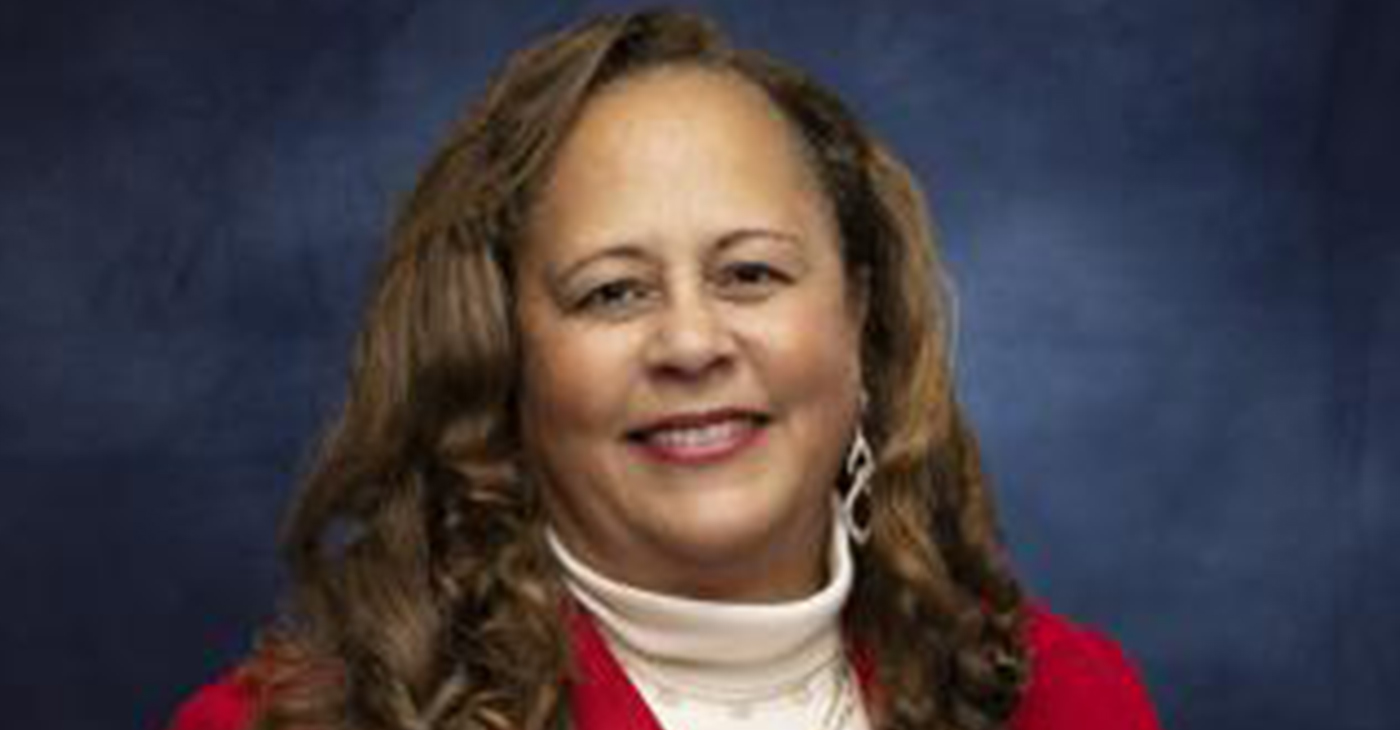
By Edward Henderson, California Black Media
Elected in November 2024 to represent California’s 35th Senate District, Sen. Laura Richardson (D-San Pedro) brings decades of experience to her role.
Before elected office, she served as a legislative staffer at the local, state, and federal levels and built a strong academic foundation, earning a political science degree from UCLA and an MBA from USC.
Richardson says she remains deeply committed to empowering residents, strengthening neighborhoods, and supporting the local economy.
For example, SB 748, a bill she authored that Gov. Newsom signed into law this year, allows cities to use existing homelessness funds to clear unsafe RV encampments, and another measure aimed at expanding provider access for Medi-Cal patients.
California Black Media (CBM) spoke with Richardson about her successes and disappointments over the past year and her plans for 2026.
What stands out as your most important achievement this year?
Being number one in getting the most bills signed by a freshman senator. Our team and staff were able to effectively move legislation through committees in both the Senate and Assembly and gain the governor’s support.
How did your leadership contribute to improving the lives of Black Californians?
Securing overall agency support from the governor to begin the work of understanding and documenting descendants of slavery. The discussion around “40 acres and a mule” will be ongoing for many years, but moving forward with creating an agency—although not fully funded—was significant. They were baby steps, but they were steps.
What frustrated you the most this year?
The administration. Even though federal and state roles differ, California has its own values and priorities. When the federal government makes cuts that impact Californians, the state legislature feels the need to backfill to protect people. It was challenging and frustrating.
What inspired you the most this year?
SB 237, which I was a joint principal author on, inspired me. It dealt with fuel stability. Two refineries closed, and several others are barely hanging on. Even as we work toward zero emissions, we still need a certain amount of fuel. SB 237 opened up some of the fuel potential in Kern County, and there’s a pipeline from Kern County down to my district.
What is one lesson you learned this year that will inform your decision-making next year?
Engage the governor’s staff earlier. I’m going to push to involve the governor’s legislative staff sooner.
In one word, what is the biggest challenge Black Californians are facing right now?
Affordability. No matter how much you make, everything is more expensive—gas, groceries, insurance, mortgages. Costs keep rising while salaries don’t.
What is the goal you want to achieve most in 2026?
Creating a process for dealing with abandoned cemeteries.
The last piece—not specific to this year but building toward the future—is figuring out how people and businesses in the district and in California can participate in major events like the Olympics, FIFA, and the Super Bowl, all of which are taking place here.
-

 Alameda County4 weeks ago
Alameda County4 weeks agoSeth Curry Makes Impressive Debut with the Golden State Warriors
-

 #NNPA BlackPress4 weeks ago
#NNPA BlackPress4 weeks agoLIHEAP Funds Released After Weeks of Delay as States and the District Rush to Protect Households from the Cold
-

 #NNPA BlackPress4 weeks ago
#NNPA BlackPress4 weeks agoSeven Steps to Help Your Child Build Meaningful Connections
-

 #NNPA BlackPress4 weeks ago
#NNPA BlackPress4 weeks agoSeven Steps to Help Your Child Build Meaningful Connections
-

 #NNPA BlackPress4 weeks ago
#NNPA BlackPress4 weeks agoTrinidad and Tobago – Prime Minister Confirms U.S. Marines Working on Tobago Radar System
-

 #NNPA BlackPress4 weeks ago
#NNPA BlackPress4 weeks agoThanksgiving Celebrated Across the Tri-State
-

 #NNPA BlackPress4 weeks ago
#NNPA BlackPress4 weeks agoTeens Reject Today’s News as Trump Intensifies His Assault on the Press
-

 #NNPA BlackPress4 weeks ago
#NNPA BlackPress4 weeks agoBreaking the Silence: Black Veterans Speak Out on PTSD and the Path to Recovery





